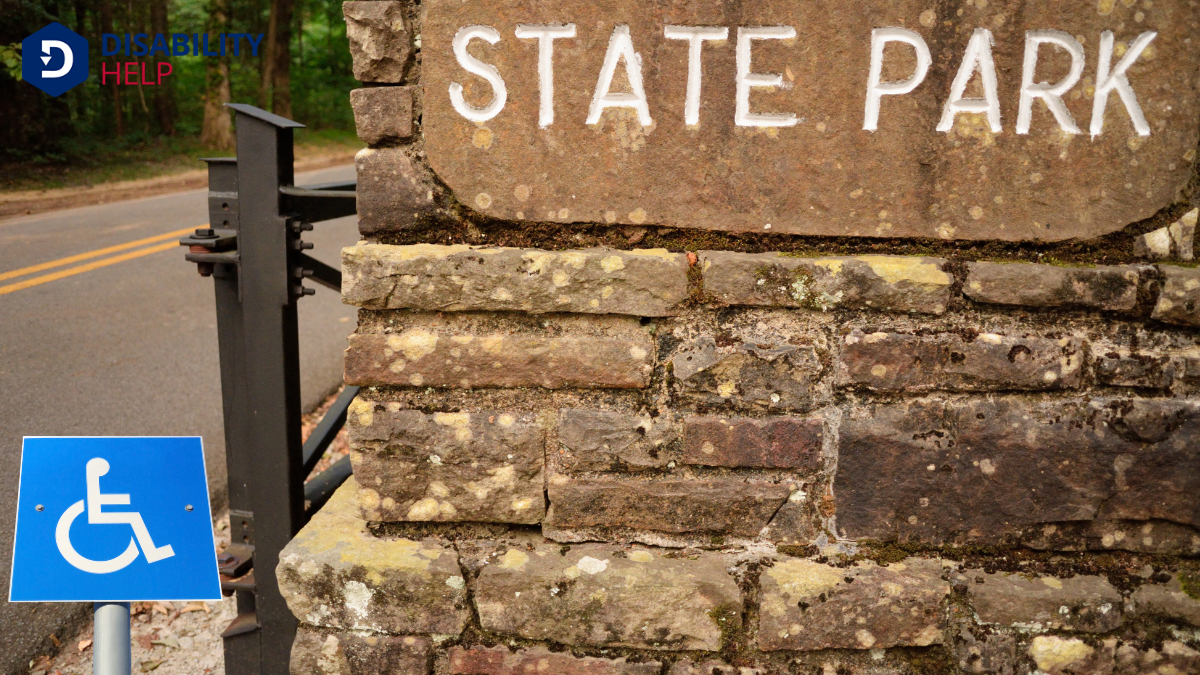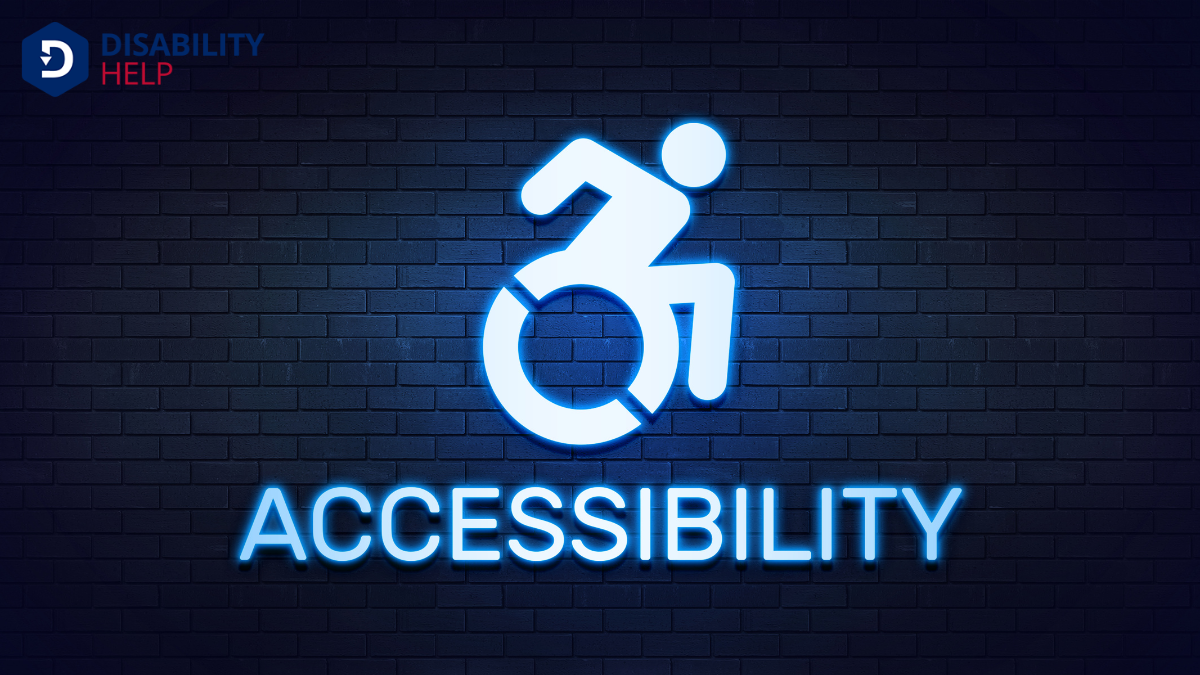As we explore whether state parks must comply with federal disability laws, we find ourselves delving into the complexities of the Americans With Disabilities Act (ADA)A U.S. law that prohibits discrimination against individuals with disabilities in all areas of publi.... This legislation is designed to guarantee that public spaces are accessible to everyone, including those with disabilities. But how do state parks measure up? Are they meeting the necessary requirements, or are there challenges they face? Let's uncover the reality behind state parks' compliance with these important regulations.
Key Takeaways
- State parks must comply with federal disability laws, including the ADA, to ensure accessibilityThe design of products, devices, services, or environments to be usable by people with disabilities.... for individuals with disabilities.
- Federal laws mandate that state park facilities, such as restrooms and pathways, be accessible to all visitors.
- Accessibility requirements cover both physical structures and communication methods for visitors with hearing or vision impairments.
- The ADA standards apply to new construction and major renovations in state parks to guarantee inclusivity.
- State parks face challenges like rugged terrain and financial constraints in implementing accessibility improvements.
Understanding the Americans With Disabilities Act (ADA)
When it comes to guaranteeing equal accessThe principle that all individuals, including those with disabilities, should have equal opportunity... and opportunity, the Americans With Disabilities Act (ADA) stands as a critical piece of legislation. It helps us understand our responsibilities in creating inclusive environments. By prohibiting discrimination against individuals with disabilities, the ADA guarantees everyone has the same rights and opportunities, fostering an inclusive society.
We know the ADA covers various areas, including employment, public accommodationsModifications or adjustments in healthcare settings to support patients with disabilities., transportation, and government services. It requires that facilities and services be accessible to all individuals, regardless of their disabilities.
Understanding the ADA means recognizing its impact on daily life and how it guides us in promoting accessibility. It’s about taking active steps to remove barriers and guaranteeing that everyone can participate fully in all aspects of life.
How Federal Disability Laws Apply to State Parks

Although state parks offer a unique opportunity for outdoor recreation and connection with nature, they must also adhere to federal disability laws to guarantee accessibility for everyone.
We recognize that federal laws, like the Americans With Disabilities Act (ADA), outline standards that state parks must follow to secure inclusivity. These laws require that facilities and programs within the parks be accessible to individuals with disabilities.
We’re aware that this includes making paths, picnic areas, and restrooms accessible, as well as ensuring that communication methods accommodate those with hearing or vision impairments.
Key Accessibility Requirements for State Parks
Understanding how federal disability laws apply to state parks lays the groundwork for identifying key accessibility requirements that need to be in place. We must guarantee that state parks are welcoming and accessible to everyone. This means complying with the Americans with Disabilities Act (ADA) and the Architectural Barriers Act (ABA).
These laws require that facilities like restrooms, parking lots, pathways, and visitor centers accommodate individuals with disabilities. Accessible design includes providing ramps, wide pathways, and clear signage for easy navigation.
Campgrounds and picnic areas should also have designated spaces that allow wheelchair access. Additionally, any new construction or major renovations in state parks must adhere to ADA standards. By understanding these requirements, we can create environments where everyone feels included and valued.
Challenges in Implementing Accessibility in State Parks
While guaranteeing accessibility in state parks is essential, we face several challenges in implementing these measures effectively.
One major issue is the diverse and rugged terrain of many parks, which makes constructing accessible paths and facilities difficult without disrupting the natural environment.
We also encounter financial constraints, as the cost of building and maintaining accessible infrastructure can be high, and state budgets are often limited.
Another challenge is the need for specialized training for park staff to guarantee they understand and can assist visitors with disabilities appropriately.
Additionally, balancing historical preservation with modern accessibility requirements can be complex, as changes to historical structures must be carefully managed.
Engaging with these challenges requires thoughtful planning and collaboration to make state parks welcoming for everyone.
Strategies for Enhancing Accessibility in State Parks

To enhance accessibility in state parks, we must adopt a multifaceted approach that balances environmental preservation with the needs of all visitors.
First, we can assess current facilities to identify barriers and prioritize improvements. Installing ramps, handrails, and accessible restrooms guarantees everyone can enjoy the parks.
Next, let's incorporate technology, like mobile apps, to provide virtual tours and real-time information on accessible routes.
Staff training is essential, too, so all employees understand how to assist visitors with disabilities.
We should also engage the community, including disability advocates, in the planning process to guarantee diverse needs are met.
Frequently Asked Questions
What Is the Penalty for State Parks Not Complying With Federal Disability Laws?
If state parks don't comply with federal disability laws, they risk lawsuits, fines, and potential federal funding loss. Let's guarantee accessibility and inclusivity by advocating for compliance, making nature accessible for everyone. It's our shared responsibility.
Do State Parks Receive Federal Funding to Improve Accessibility?
We receive federal funding for improving accessibility in state parks. These funds help us enhance facilities and programs for visitors with disabilities. By prioritizing inclusivity, we guarantee everyone can enjoy natural beauty and recreational opportunities equally.
How Can Visitors Report Accessibility Issues at State Parks?
Let's guarantee our state parks are accessible for everyone. We can report accessibility issues by contacting the park's management directly or using the designated state parks website or hotline. Together, we can help improve accessibility for all visitors.
Are There Volunteer Programs for Improving Accessibility in State Parks?
Let's explore how we can volunteer to enhance accessibility in state parks. Many programs welcome us to contribute our time and skills. By participating, we can help guarantee everyone enjoys the outdoors without barriers.
How Do State Parks Prioritize Accessibility Improvements?
We prioritize accessibility improvements by evaluating visitor needs, conducting regular evaluations, and collaborating with stakeholders. We aim to create inclusive, enjoyable experiences for everyone. Your feedback helps us identify areas needing attention, so please share your thoughts with us!
Conclusion
In summary, we've explored how state parks must comply with the ADA to guarantee accessibility for all. It's clear that these regulations are vital for promoting inclusivity and equal access to nature's wonders. While challenges exist, it's up to us to advocate for improvements and support efforts to enhance accessibility. By working together, we can make certain everyone, regardless of ability, can enjoy the beauty and recreational opportunities our state parks have to offer.






